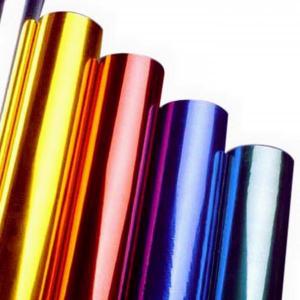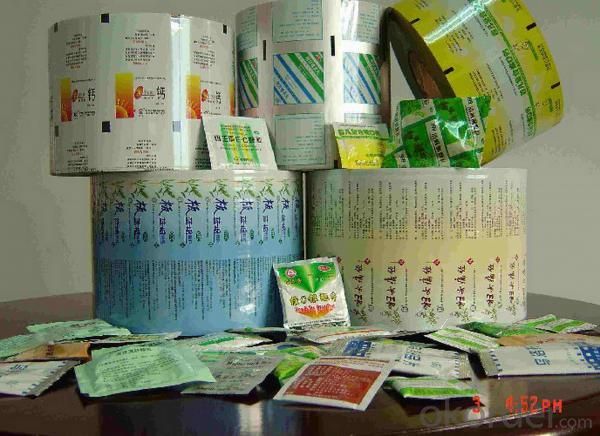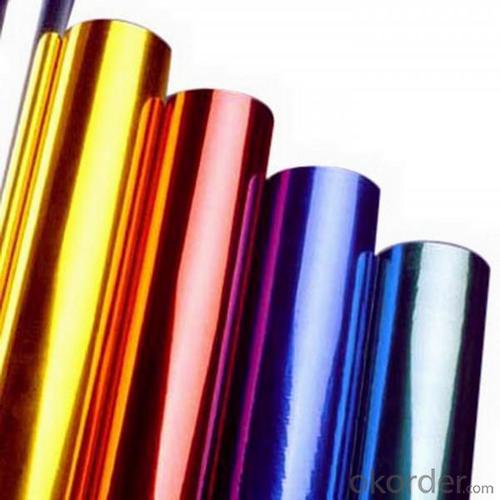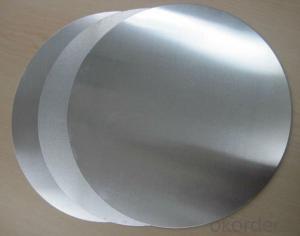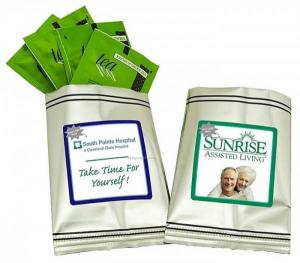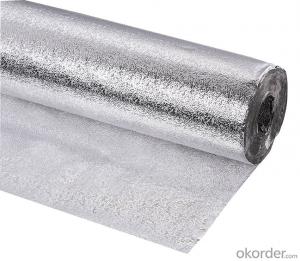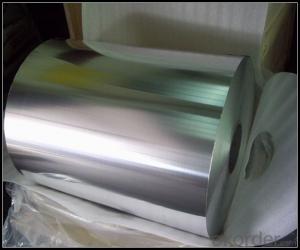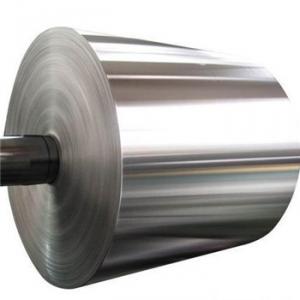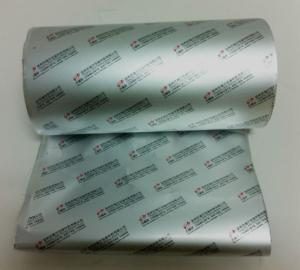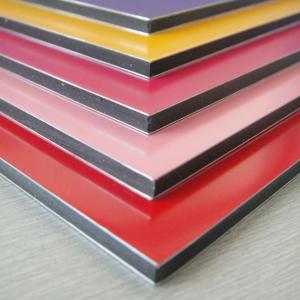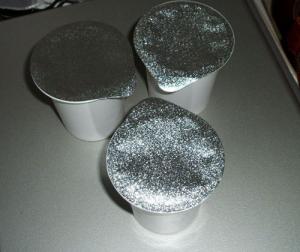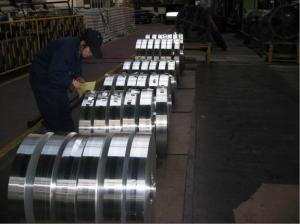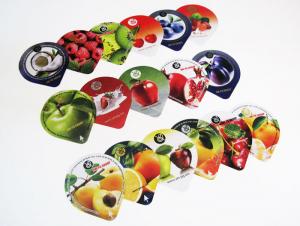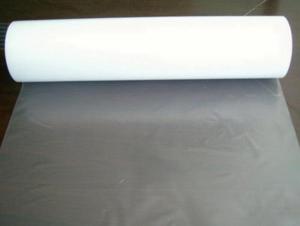Aluminum Foil for Lamination
- Loading Port:
- China Main Port
- Payment Terms:
- TT or LC
- Min Order Qty:
- 1 m.t.
- Supply Capability:
- 7000MT/MONTH m.t./month
OKorder Service Pledge
OKorder Financial Service
You Might Also Like
Quick details of Aluminium foil for lamination
Alloy: 1235/8011/8079
Temper: O
Specifications of Aluminium foil for lamination
Thickness & Tolerance: 0.006 mm - 0.03mm (+/-6%)
Width & Tolerance: 200 - 1650 mm (+/-1 mm)
Mechancial Properties: Tensile Strength (U.T.S.)50-110MPA, Elogation≥1%
Standard: GB/T3198 / ASTM-B209 / EN546
Usage/Application of Aluminium foil for lamination
For lamination
Packaging & Delivery of Aluminium foil for lamination
Packing: seaworthy wooden box with pallet
Delivery: to be loaded by 1 x 20 feet container
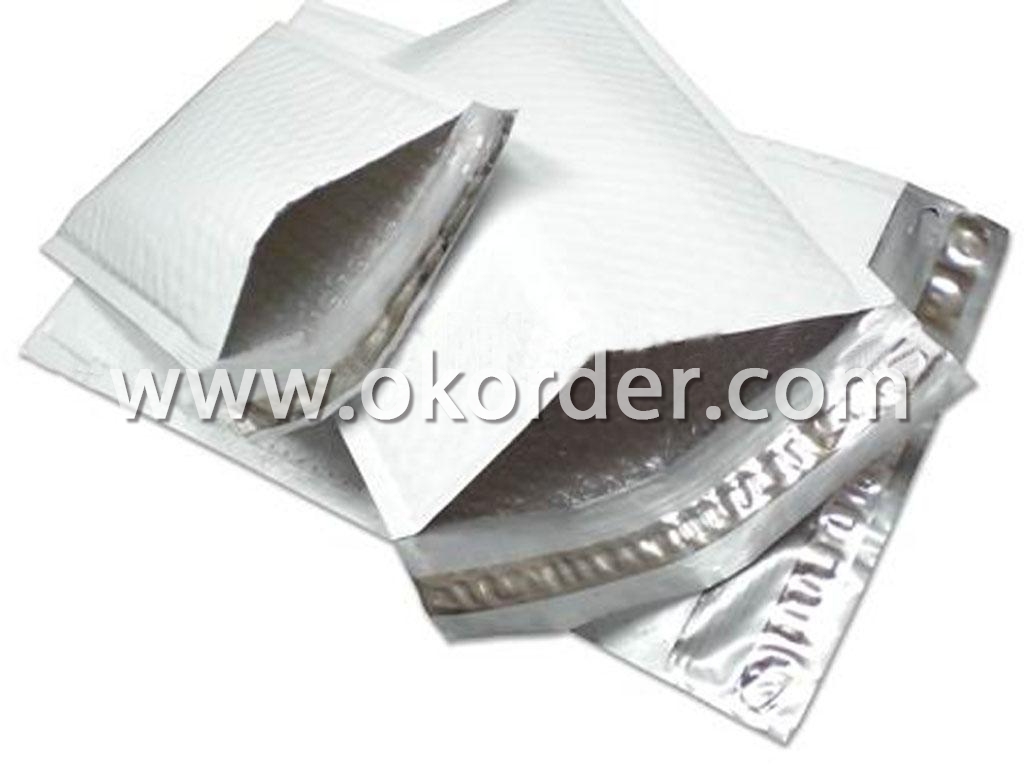
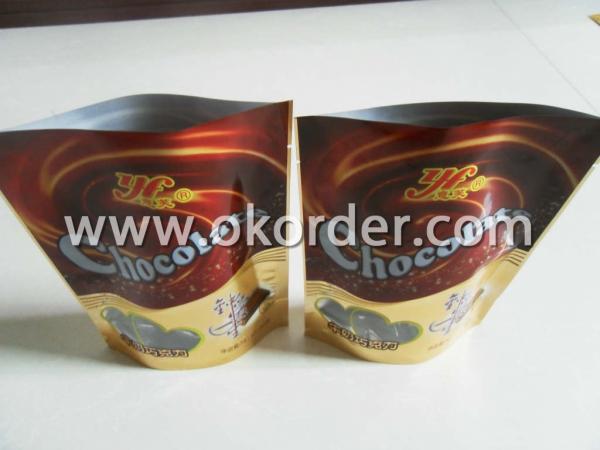
- Q: This question asks for a description of the characteristics that are inherent to pure aluminum.
- <p>Pure aluminum is a lightweight, silvery-white metal known for its excellent malleability, ductility, and electrical conductivity. It has a density of 2.7 g/cm鲁, which is about one-third that of steel. It is non-magnetic and has a low melting point of 660掳C (1220掳F). Pure aluminum is also highly reflective, making it useful in mirrors and reflective coatings. It is a good thermal conductor and is resistant to corrosion due to the formation of a protective oxide layer on its surface. However, it is soft and lacks strength, which is why it is often alloyed with other elements to improve its mechanical properties.</p>
- Q: Is it possible to use aluminum as a substance that accelerates chemical reactions?
- <p>Aluminum is not typically used as a catalyst in chemical reactions. Catalysts are substances that increase the rate of a chemical reaction without being consumed in the process. Aluminum, being a metal with a +3 oxidation state, does not readily participate in reactions where it could act as a catalyst. Instead, it is more commonly used in its elemental form for structural purposes or as a reducing agent in certain chemical processes. However, aluminum compounds, such as alumina (Al2O3), can be used as catalysts or catalyst supports in specific industrial applications.</p>
- Q: Is the accumulation of aluminum in the body harmful to health?
- <p>Aluminum buildup in the body has been a subject of concern, particularly in relation to Alzheimer's disease. While aluminum is naturally present in the environment and is used in various products, including food packaging and cookware, there is no strong scientific evidence to support the claim that aluminum exposure or accumulation causes health problems in humans. The World Health Organization and other health authorities have stated that aluminum intake from food and drinking water is not a significant health risk for the general population. However, it is always recommended to follow good hygiene practices and use cookware that is known to be safe for food preparation to minimize any potential risks.</p>
- Q: Is it possible to recycle aluminum cans and turn them into new cans?
- <p>Yes, aluminum cans can be recycled into new ones. The recycling process involves melting the used cans, which is much less energy-intensive than extracting and refining new aluminum from bauxite ore. Once melted, the aluminum can be reshaped into new cans or other products. This process is not only environmentally friendly but also economically efficient, as it saves energy and reduces waste.</p>
- Q: Describe the characteristics and properties of aluminum oxide.
- <p>Aluminum oxide, also known as alumina, is a compound of aluminum and oxygen with the chemical formula Al2O3. It is a white solid that is insoluble in water but soluble in acid and base. It has a high melting point (over 2000掳C), high hardness, and is chemically inert. Aluminum oxide is also a good electrical insulator and has a high refractive index. It is used in various applications, including abrasives, refractory materials, and as a catalyst in chemical processes. Additionally, it is biocompatible and is used in medical implants and dental materials.</p>
- Q: Describe the steps involved in the manufacturing of aluminum sheets.
- <p>The process of manufacturing aluminum sheets involves several key steps. Initially, aluminum ore, typically bauxite, is mined and then processed to remove impurities. The purified aluminum oxide is then dissolved in a cryolite bath at high temperatures, a process known as the Hall-H茅roult process. This results in molten aluminum, which is then cast into ingots. These ingots are reheated and passed through rollers to gradually reduce their thickness, creating aluminum sheets. The sheets are then cooled, cut to size, and may undergo further treatments like annealing or coating, depending on their intended use. The final product is a flat, thin sheet of aluminum ready for various applications.</p>
- Q: This question asks for the distinguishing characteristics of aluminum compared to other metals.
- <p>Aluminum is a lightweight, silvery-white metal that is the most abundant metal in the Earth's crust. It is known for its low density, making it one-third the weight of steel. It is highly malleable, ductile, and has excellent corrosion resistance due to the formation of a protective oxide layer. Unlike many other metals, aluminum is not magnetic and has good thermal conductivity. It is also non-toxic and can be recycled easily. These properties make aluminum distinct from other metals such as iron, copper, and lead, which have different densities, melting points, and chemical reactivities.</p>
- Q: Is it possible to recycle aluminum to create new products?
- <p>Yes, aluminum can be recycled and used to make new products. Aluminum is one of the most recycled materials in the world due to its lightweight, durability, and the fact that it can be recycled indefinitely without losing quality. Recycled aluminum saves energy and reduces waste, making it an environmentally friendly choice for manufacturing new products.</p>
- Q: Is it possible to recycle aluminum in a landfill setting?
- <p>Aluminum can be recycled, but not in a landfill. Landfills are not designed for recycling; they are for waste disposal. Aluminum recycling typically occurs at specialized facilities where the metal is sorted, cleaned, and processed. Landfills can contaminate aluminum with other materials, making it unsuitable for recycling. Proper recycling of aluminum conserves resources and energy, and it's crucial to recycle aluminum through appropriate channels rather than disposing of it in landfills.</p>
- Q: This question asks for a comparison between aluminum and magnesium, two common metallic elements, highlighting their differences.
- <p>Aluminum and magnesium are both lightweight metals with distinct properties. Aluminum is more abundant in the Earth's crust and is known for its high strength-to-weight ratio, making it ideal for construction and transportation. It is also a good conductor of heat and electricity. Magnesium, while also lightweight, is less dense and has a lower melting point than aluminum. It is highly reactive and is often used in alloys to increase strength and durability. Magnesium is also essential for biological processes and is commonly found in supplements. In terms of reactivity, magnesium is more reactive than aluminum, which makes it more prone to corrosion in certain environments.</p>
Send your message to us
Aluminum Foil for Lamination
- Loading Port:
- China Main Port
- Payment Terms:
- TT or LC
- Min Order Qty:
- 1 m.t.
- Supply Capability:
- 7000MT/MONTH m.t./month
OKorder Service Pledge
OKorder Financial Service
Similar products
Hot products
Hot Searches
Related keywords
